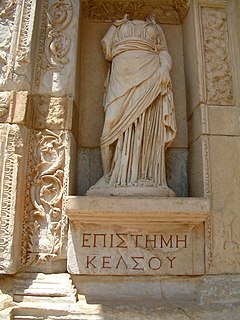
Cultural imperialism also called cultural colonialism comprises the cultural aspects of imperialism. “Imperialism” here refers to the creation and maintenance of unequal relationships between civilizations, favoring a more powerful civilization. Thus,the cultural imperialism is the practice of promoting and imposing a culture, usually that of a politically powerful nation, over a less powerful society; in other words, the cultural hegemony of industrialized or politically and economically influential countries which determine general cultural values and standardize civilizations throughout the world. The term is employed especially in the fields of history, cultural studies, and postcolonial theory. It is usually used in a pejorative sense, often in conjunction with calls to reject such influence. Cultural imperialism may take various forms, such as an attitude, a formal policy, or military action, insofar as it reinforces cultural hegemony.

A state is a polity that is typically established as a centralized organisation. There is no undisputed definition of a state. Max Weber's definition of a state as a polity that maintains a monopoly on the use of violence is widely used, as are many others.

Discourse denotes written and spoken communications:

Paul-Michel Foucault, generally known as Michel Foucault, was a French philosopher, historian of ideas, social theorist and literary critic.

The History of Sexuality is a four-volume study of sexuality in the western world by the French historian and philosopher Michel Foucault, in which the author examines the emergence of "sexuality" as a discursive object and separate sphere of life and argues that the notion that every individual has a sexuality is a relatively recent development in Western societies. The first volume, The Will to Knowledge, was first published in 1976; an English translation appeared in 1978. The Use of Pleasure, and The Care of the Self, were published in 1984. The fourth volume, Confessions of the Flesh, was published posthumously in 2018.

"Episteme" is a philosophical term derived from the Ancient Greek word ἐπιστήμη epistēmē, which can refer to knowledge, science or understanding, and which comes from the verb ἐπίστασθαι, meaning "to know, to understand, or to be acquainted with".
Governmentality is a concept first developed by the French philosopher Michel Foucault in the later years of his life, roughly between 1977 and his death in 1984, particularly in his lectures at the Collège de France during this time.
Discourse analysis (DA), or discourse studies, is an approach to the analysis of written, vocal, or sign language use, or any significant semiotic event.

Discipline and Punish: The Birth of the Prison is a 1975 book by the French philosopher Michel Foucault. It is an analysis of the social and theoretical mechanisms behind the changes that occurred in Western penal systems during the modern age based on historical documents from France. Foucault argues that prison did not become the principal form of punishment just because of the humanitarian concerns of reformists. He traces the cultural shifts that led to the predominance of prison via the body and power. Prison used by the "disciplines" – new technological powers that can also be found, according to Foucault, in places such as schools, hospitals, and military barracks.
Biopower is a term coined by French scholar, philosopher, historian, and social theorist Michel Foucault. It relates to the practice of modern nation states and their regulation of their subjects through "an explosion of numerous and diverse techniques for achieving the subjugations of bodies and the control of populations". Foucault first used the term in his lecture courses at the Collège de France, but the term first appeared in print in The Will To Knowledge, Foucault's first volume of The History of Sexuality. In Foucault's work, it has been used to refer to practices of public health, regulation of heredity, and risk regulation, among many other regulatory mechanisms often linked less directly with literal physical health. It is closely related to a term he uses much less frequently, but which subsequent thinkers have taken up independently, biopolitics, which aligns more closely with the examination of the strategies and mechanisms through which human life processes are managed under regimes of authority over knowledge, power, and the processes of subjectivation.
Biopolitics is an intersectional field between human biology and politics. It is a political wisdom taking into consideration the administration of life and a locality’s populations as its subject. To quote Foucault, it is ‘to ensure, sustain, and multiply life, to put this life in order."
Sociocultural evolution, sociocultural evolutionism or cultural evolution are theories of cultural and social evolution that describe how cultures and societies change over time. Whereas sociocultural development traces processes that tend to increase the complexity of a society or culture, sociocultural evolution also considers process that can lead to decreases in complexity (degeneration) or that can produce variation or proliferation without any seemingly significant changes in complexity (cladogenesis). Sociocultural evolution is "the process by which structural reorganization is affected through time, eventually producing a form or structure which is qualitatively different from the ancestral form".
The Foucault–Habermas debate is a dispute concerning whether Michel Foucault's ideas of "power analytics" and "genealogy" or Jürgen Habermas' ideas of "communicative rationality" and "discourse ethics" provide a better critique of the nature of power in society. The debate compares and evaluates the central ideas of Habermas and Foucault as they pertain to questions of power, reason, ethics, modernity, democracy, civil society, and social action.
Semiotext(e) is an independent publisher of critical theory, fiction, philosophy, art criticism, activist texts and non-fiction.
Nikolas Rose is a prominent British sociologist and social theorist. He is Professor of Sociology in the Department of Global Health and Social Medicine at King's College London, having joined King's in January 2012 to found this new Department. Previously he was the James Martin White Professor of Sociology at the London School of Economics, director and founder of LSE's BIOS Centre for the Study of Bioscience, Biomedicine, Biotechnology and Society from 2002 to 2011, and Head of the LSE Department of Sociology (2002–2006). He was previously Professor of Sociology at Goldsmiths, University of London, where he had been Head of the Department of Sociology, Pro-Warden for Research and Head of the Goldsmiths Centre for Urban and Community Research and Director of a major evaluation of urban regeneration in South East London.
Heterotopia is a concept elaborated by philosopher Michel Foucault to describe certain cultural, institutional and discursive spaces that are somehow ‘other’: disturbing, intense, incompatible, contradictory or transforming. Heterotopias are worlds within worlds, mirroring and yet upsetting what is outside. Foucault provides examples: ships, cemeteries, bars, brothels, prisons, gardens of antiquity, fairs, Muslims baths and many more. Foucault outlines the notion of heterotopia on three occasions between 1966-67. A talk given to a group of architects is the most well-known explanation of the term. His first mention of the concept is in his preface to 'The Order of Things' and refers to texts rather than socio-cultural spaces.
Claude Raffestin is a Swiss geographer. He is professor of human geography at University of Geneva.
On the proposal of Jules Vuillemin, a chair in the department of Philosophy and History was created at Collège de France to replace the late Jean Hyppolite. The title of the new chair was The history of systems of thought and it was created on 30 November 1969. Vuillemin put forward the then-little known outside the shores of France-philosopher Michel Foucault - to the general assembly of professors and Foucault was duly elected on 12 April 1970. He was 44 years old. As required by this appointment he held a series of public lectures from 1970 until his death in 1984. These lectures in which he further advanced his work, were summarised from audio recordings and edited by Michel Senellart. They were subsequently translated into English and further edited by Graham Burchell and published posthumously by St Martin's Press.
The Birth of Biopolitics is a part of a lecture series by French philosopher Michel Foucault at the Collège de France between 1978 and 1979 and published posthumously based on audio recordings. In it, Foucault develops further the notion of biopolitics introduced in a previous lecture series, Security, Territory, Population, by tracing the ways in which the eighteenth-century political economy marked the birth of a new governmental rationality. Foucault uses the term Governmentality and raising questions of Political science, political philosophy and social policy concerning the role and status of the State and neo-liberalism in twentieth century politics.
Security, Territory, Population is part of a lecture series given by French philosopher Michel Foucault at the Collège de France between 1977 and 1978 and published posthumously based on audio recordings. In it, Foucault examines the notion of biopolitics as a new technology of power over populations that is distinct from punitive disciplinary systems, by tracing the history of governmentality, from the first centuries of the Christian era to the emergence of the modern nation state. These lectures illustrate a radical turning point in Foucault's work in which a shift to the problematic of the government of self and others occurred.






